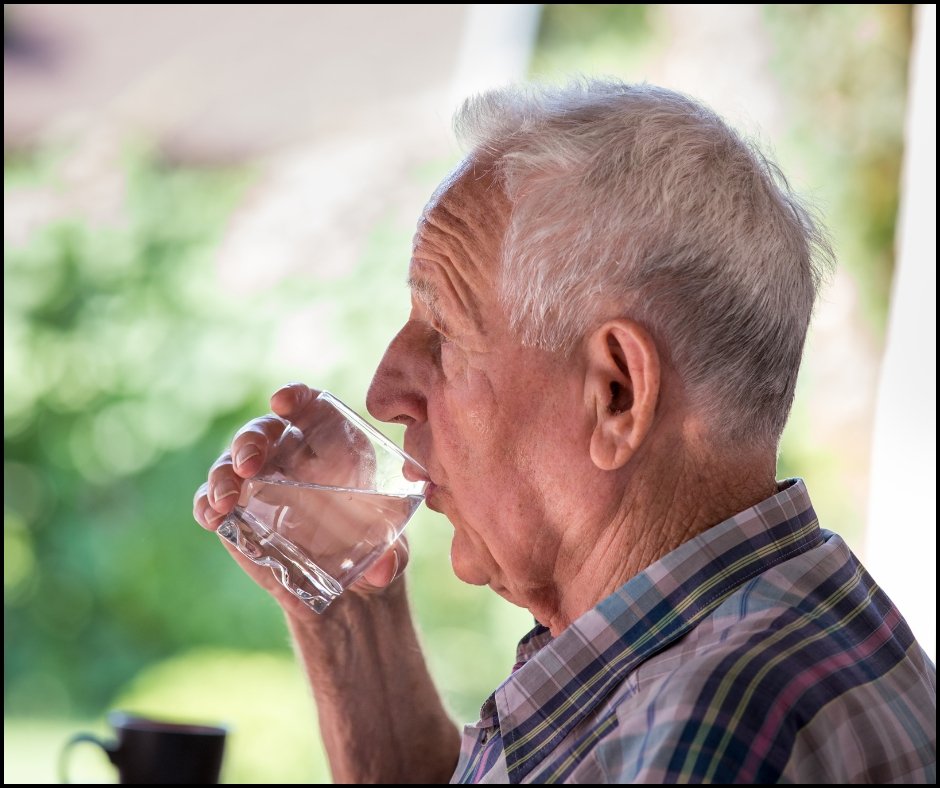The Power of Routine: How Daily Habits Transform Well-Being for Adults Over 55

Last Updated on September 15, 2025 by Rose Ann
When life gets busy, it’s often the basics – like rest, movement, and regular meals – that get pushed aside. But those small daily actions can have a profound impact on how your body feels and functions, especially as we age.
For adults over 55, establishing consistent routines isn’t just beneficial, it’s transformative for maintaining independence, vitality, and quality of life.
Why Consistency Counts Even More After 55
Your body thrives on rhythm at any age, but this becomes increasingly important as we mature. Going to bed and waking up around the same time each day may support better energy levels, improved cognitive function, and more restful sleep – all critical for healthy aging.
Research shows that adults over 55 who maintain consistent sleep schedules experience better memory consolidation and reduced risk of cognitive decline.
Adding regular movement, whether it’s a morning walk, gentle yoga, water aerobics, or resistance training with light weights, becomes essential for maintaining bone density, muscle mass, and balance.
These habits don’t need to be perfect to be powerful. What matters is showing up for yourself in simple, steady ways that honor where your body is today.

Unique Benefits for the 55+ Population
Bone Health and Fall Prevention: Regular weight-bearing activities and balance exercises integrated into daily routines can significantly reduce fracture risk. Simple habits like taking stairs when possible or doing heel-to-toe walking while brushing teeth can improve stability.
Cardiovascular Support: Consistent moderate activity helps maintain heart health and circulation, potentially reducing the risk of heart disease and stroke – leading health concerns for this age group.
Mental Sharpness: Routine cognitive activities like daily reading, puzzles, or learning new skills can help maintain mental acuity and may reduce dementia risk.
Social Connection: Building social activities into weekly routines combats isolation and loneliness, which significantly impact health outcomes for older adults.
Medication Management: Consistent daily schedules make it easier to take medications at the right times, improving treatment effectiveness and reducing adverse effects.
Start With What’s Manageable Today!
Instead of aiming for a total life overhaul, focus on one area you’d like to improve. For adults over 55, this might mean drinking more water to support kidney function, stepping away from your desk for lunch to improve digestion, or establishing an evening routine that supports better sleep quality.
Linking a new habit to something you already do, like doing gentle stretches while your morning coffee brews or taking a short walk after dinner, can make it easier to stick with that activity until it becomes a habit.
Consider your energy patterns: many people over 55 find they have more energy in the morning, making it an ideal time for physical activity.

Build a Foundation That Supports Aging Well
Healthy routines for the 55+ population aren’t about rigid schedules or intense fitness regimens. They’re about creating sustainable structure that helps your body adapt to age-related changes while maintaining strength, flexibility, and independence.
Focus on routines that address common concerns:
- Morning mobility routines to reduce stiffness and improve range of motion
- Consistent meal timing to support metabolism and blood sugar stability
- Evening wind-down practices to improve sleep quality and duration
- Regular social activities to maintain mental health and cognitive engagement
Routines Ease Mental Load and Reduce Stress
Consistent habits can significantly reduce decision fatigue – something that becomes more important as we age and want to preserve mental energy for what matters most. When daily self-care tasks are built into your rhythm, you spend less time planning and more time enjoying your day.
For older adults managing multiple health conditions or medications, routines provide crucial structure that supports better health outcomes and reduces the mental burden of constant decision-making.
Frequently Asked Questions About Routines for Adults Over 55
Q: I’m 58 and have never been good at sticking to routines. Is it too late to start? A: Absolutely not! Research shows that adults can successfully form new habits at any age. Start with just one small change and give yourself 6-8 weeks to establish it before adding something new. The key is choosing habits that feel manageable and meaningful to you.
Q: What’s the most important routine to establish first for someone my age? A: Sleep consistency tends to have the biggest ripple effect on other areas of health. Aim to go to bed and wake up within the same 30-minute window each day. This supports hormone regulation, immune function, and cognitive performance.

Q: I have arthritis. How can I build movement into my routine without increasing pain? A: Focus on gentle, consistent movement rather than intensity. Water exercises, chair yoga, or simple stretching routines can be very effective. The key is finding activities that feel good and doing them regularly rather than sporadically pushing through pain.
Q: How do I maintain routines when I’m dealing with health setbacks or medical appointments? A: Build flexibility into your routines by having “minimum viable” versions. For example, if your usual 30-minute walk isn’t possible, have a 10-minute indoor alternative. The goal is consistency, not perfection.
Q: Should my routines change as I get older? A: Yes, and that’s completely normal. What worked at 55 might need adjustment at 65 or 75. Stay attuned to your body’s changing needs and be willing to modify routines while maintaining the underlying structure.
Q: How can routines help with managing chronic conditions? A: Consistent routines help stabilize blood sugar, blood pressure, and medication effectiveness. They also make it easier to track symptoms and identify patterns, which is valuable information for your healthcare team.
Q: What if my spouse or partner isn’t interested in healthy routines? A: Focus on your own habits first. Often, when others see positive changes, they become more interested. You can also look for routines you can do independently, like morning stretching or evening reading.
Q: How long does it take to see benefits from new routines? A: Some benefits, like improved mood and energy, may be noticeable within days or weeks. Physical changes like improved strength or flexibility typically take 4-8 weeks of consistency. The key is to celebrate small wins along the way.
Q: I’m retired and my days feel too unstructured. How can routines help? A: Retirement routines provide purpose and structure while maintaining flexibility. Consider anchoring your day with 2-3 consistent elements (like morning coffee and reading, afternoon activity, evening reflection) while leaving room for spontaneity.
Q: What’s the biggest mistake people over 55 make when trying to establish routines? A: Trying to change too much at once or comparing themselves to their younger selves. The most successful approach is starting small, being patient with the process, and adjusting expectations to match current capabilities and circumstances.
Professional Support for Sustainable Health Routines
Building routines that truly support your health after 55 often benefits from professional guidance. Healthcare providers, physical therapists, and wellness coaches who understand the unique needs of older adults can help you create sustainable habits that work with your body’s current capabilities and health conditions.
Need help building habits that support your health as you age? Our team specializes in creating practical, sustainable routines for adults over 55, offering guidance without pressure – just personalized support tailored to your life stage and health goals.
Remember: the best routine is one you can maintain consistently. Start where you are, use what works, and adjust as needed. Your future self will thank you for the small, steady investments you make in your health today.





